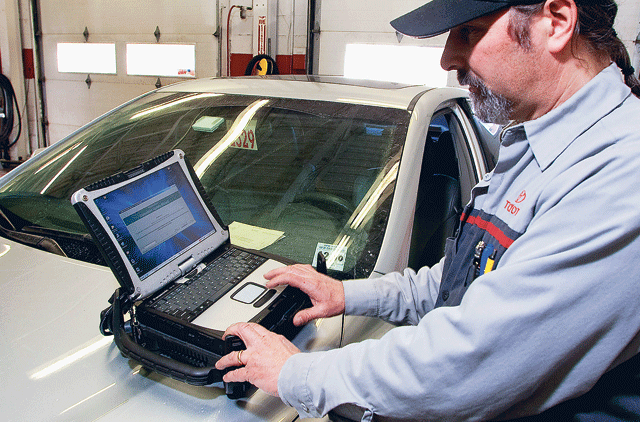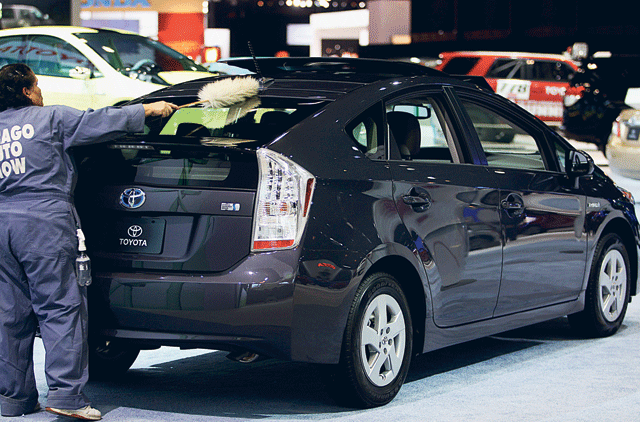
Tokyo: Assembly lines that run like clockwork. Supplies that arrive just in time. Dedicated workers trained to spot defects, churning out quality cars in the millions. Such are the trademarks of "Toyota Way" manufacturing.
That's why the automaker's recent bungling over a spate of global recalls appears so out of character.
Those very principles of efficiency and flawlessness that earned Toyota Motor Corp. a near-perfect reputation couldn't prevent problems cropping up in areas outside the factory, areas just as crucial these days in the industry design development, crisis management and software programming.
Toyota management simply failed to practice what they had long preached the rank-and-file, Anand Sharma, chief executive of TBM Consulting Group, based in Durham, North Carolina, said. "Toyota managers did not respond to the early signals. That's when they should have identified the root causes," said Sharma, who teaches Toyota production methods to businesses. "If the Toyota brand no longer stands for quality, what does it stand for?"
Since October, Toyota has recalled 8.5 million vehicles around the world for accelerator, braking and floor-mat problems in the biggest recall in its seven-decade history. The gas pedal and floor-mat defects were design errors in supplier parts, and the faulty braking in hybrid models was caused by a software glitch.
They weren't manufacturing errors, the kinds of defects workers at plants have been trained to pick out a piece that doesn't fit, a crack in a part, something that diverges from the design.
"As far as we know, Toyota is still the best manufacturing company in the world when it comes to production management," Michael A. Cusumano, professor at the MIT Sloan School of Management, said in telephone interview from London. "Workers have nothing to do with this."
‘Lean production'
Toyota's manufacturing prowess has been the topic of countless books, emulated by rivals, including Ford Motor Co., and viewed as critical in Toyota's climb from a tiny Japanese carmaker to the world's biggest, surpassing General Motors Co. in 2008. The Toyota Way, also known as "lean production," was developed in the 1950s by engineer Taiichi Ohno, who is still revered at Toyota as "kamisama," which means god.
Based on a ruthless determination to eliminate waste, , the Toyota Way has workers tackling their jobs with a passion, following instructions to a tee.
Each worker is empowered to pull on a cord that stops the assembly line. Many work selflessly, at times giving up leisure time for quality improvement.
Even today, Toyota factories are plastered with slogans that urge workers to come up with "kaizen," or innovations to boost efficiency. Workers are praised for ideas leading to recycling or shortcuts so tiny in impact they almost look like jokes squeezing mechanical oil out of rags or tsoylike mechanisms that use pulleys to move along items. Still, serious trouble was allowed to creep in elsewhere.
President Akio Toyoda acknowledged in an opinion piece he wrote for The Washington Post last week the company had "failed to connect the dots" between the sticky pedals in Europe, surfacing as early as December 2008, and those in the US that culminated in the massive recalls.
The error in Europe was corrected, starting with the Aygo hatchback in August 2009, and those were not included in the latest recalls.
In principle, such fixes stemming from customer complaints are communicated via headquarters for speedy checks in other regions, Toyota Europe spokesman Colin Hensley said. Confounding the effort were factors such as the European models being right-hand drives and mostly manual transmission, he said.
With cars becoming more complex, fears are growing old-style quality controls over manufacturing are rapidly becoming outdated, experts say.













